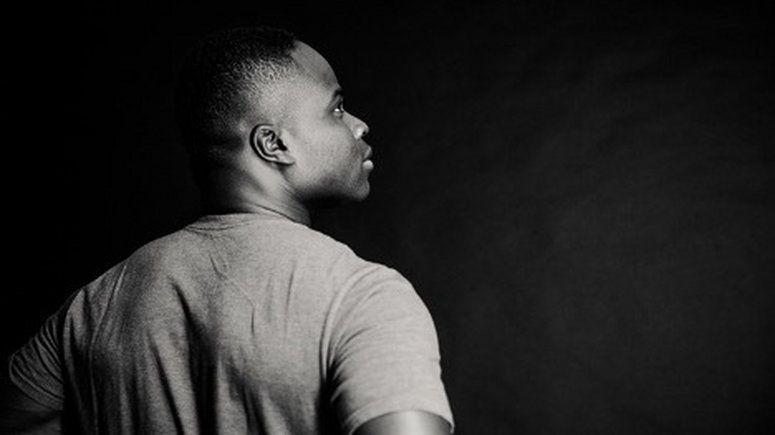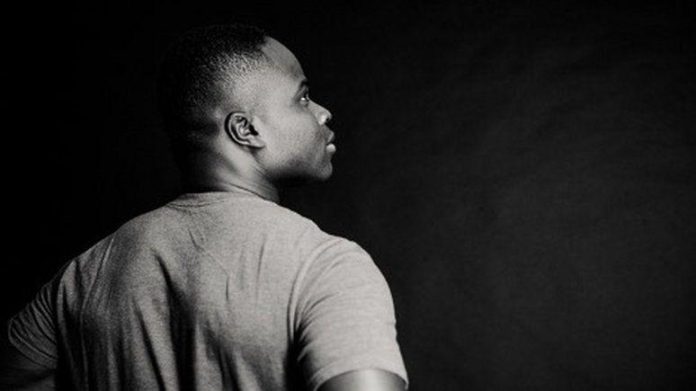I have been wondering how to write this column for weeks, maybe even for years. I just didn’t know where to start until now. Recent events in Glynn County, Georgia USA helped me realize I need to speak up.

Here’s a little background. A father and son in Georgia, USA were charged with murder and aggravated assault May 7, 2020, for the killing of 25-year-old Ahmaud Arbery. The arrests came only after a video surfaced showing the moments before Ahmaud’s death on Feb. 23, 2020.
According to the Stamford Advocate, the video shows two white men approach a young black man jogging on the street. After a brief interaction, gunshots are heard, and the jogger fell to the ground. Former U.S. Vice President Joe Biden compared it to a lynching and Georgia Governor Brian Kemp called the shooting “absolutely horrific.”
In short, another person is dead in what appears to be a racially motivated killing. I’m not a lawyer, but I pray to God that when all the facts are presented that true justice will be served.
Calling out racism
For years I avoided calling out racism, perhaps thinking if I didn’t say anything people will do the right thing and treat everyone equally regardless of skin colour. Sadly, that’s not the case and I have to say something because I know I am not alone in how I feel.
Some people are uncomfortable talking about race and sometimes ignore it completely, but we can’t blindly sit by and pretend racism doesn’t happen. Minorities, in this case, a black man, was senselessly killed in his neighbourhood, but others are denied jobs, denied attending prestigious universities, or just outright mocked. Earlier this spring, blacks were targeted by the government in China during the early phases of the coronavirus outbreak.
The dictionary defines racism as “prejudice, discrimination, or antagonism directed against someone of a different race based on the belief that one’s race is superior.” I realize blacks are not the only ones to suffer racism but why does it still happen in 2020? When someone asks me ‘why are some black people so angry,’ I say, ‘it’s because we have had to deal with this sh*t for too long!’
My parents raised me NOT to judge people by the colour of their skin, but by the content of their character. It is not “white people this” and “black people that” because we are all equal.
My ancestors and racism
I didn’t know much about my ancestors’ slavery story until May 2019. My wife, Erica, and I visited the Cape Coast Slave Castle in Ghana where my ancestors were held and tortured for more than 400 years. If you were strong enough to survive the torture, you got shipped to America to work for a white slave master.
I wondered why my parents never said anything about this treatment, so I determined they gave up. They gave up because justice never treated them right, and they did not want me to get involved in a battle that the black race has been fighting for centuries and continues to battle today.
According to the US Department of Justice, African Americans accounted for 52.5% of all homicide offenders from 1980 to 2008, with Whites 45.3% and “Other” 2.2%. The offending rate for African Americans was almost 8 times higher than Whites, and the victim rate 6 times higher.
If the video of Ahmaud Arbery’s shooting didn’t show up, his death might have been counted as just another statistic. People would have assumed he was a criminal and somehow “got what he deserved.”
Racism doesn’t just exist among different races. Within our own community, we have a long way to go on how we treat each other. I have not always been treated fairly by my own race. But no one deserves to be shot simply because of the color of their skin.
My experience with racism
The case of Ahmaud Arbery resonates with me. I’m black and I love running in the mornings. I have also been targeted because of my skin colour.
In the winter of 2010, my ex-girlfriend and I visited friends in Park City, Utah. After our visit, it was late, below freezing with lots of black ice on the road, and I was driving slower than usual. A policeman stopped me and told me there had been guys from California coming to Utah and smuggling drugs with white women sitting by them in the car. My ex-girlfriend was not white but had lighter skin. I received a ticket for driving slow.
In the summer of 2017, I went to visit my sister-in-law in Holladay, Utah, at her work. As I was driving, I was followed for 10 minutes by a police officer. When he finally stopped me in the parking lot of my sister-in-law’s workplace, he told me he stopped me because somebody who looked like me, wearing a grey sweater, was causing problems in the neighbourhood. I was wearing all black that day.
After graduating cum-laude from Utah Valley University in 2013, I was looking for a job in Utah. I found one as a vacuum salesman and applied online. They were doing same-day interviews, but I didn’t hear back until around 8 p.m. to come in for the interview.
I got the job on the spot and became one of the best vacuum salesmen in the country. I won many awards and started my successful franchise after just 5 months as a door-to-door salesman — something that takes most people 4 to 5 years to do.
My boss and I became good friends, and he later admitted he didn’t want to hire me at first because I was black. He said he had problems with black salesmen in the past, but his black girlfriend at the time convinced him to interview me.
When I was engaged to Erica, who is white, her then 89-year-old grandma wrote her a letter asking her not to marry me. I was not good enough because I don’t belong to Erica’s religion, and came from a much different background than Erica’s family. At first, I made the comments like, “Oh Granny, she is from the olden days, it’s okay.”
But Erica wasn’t okay with it and spoke up. To her, and I agree, coming from different backgrounds were just that, but neither was better than the other. I should say this example did not hurt our relationship and I love Erica’s family.
We need to call it out
I think everyone needs to be a bit more like my Grandma Minka in Ghana. She was almost in her 90’s when she met Erica for the first time in 2019. The first thing she said was, “Come into my arms,” and gave Erica the biggest hug. Grandma Minka knew I loved Erica, and that’s all she cared about, not about Erica’s skin color or religion.
When we hear or see intolerance, discrimination, and racism we need to call it out.
I know not all white people are racist, ignorant and discriminatory. I have more examples of being loved and supported by white people than times I have been discriminated against for being black. Most people accept me for who I am, and I know they didn’t do it because of the colour of my skin, but because of who I am. I am positive and I work hard, and I love it when people recognize that there is more to me than my race.
But the tragedy in Georgia USA motivated me to speak up and let others know there’s nothing wrong with calling out injustice. If we don’t call it out, we only allow it to continue. That’s why I will stay silent no longer. I decided to use my voice moving forward.
You should do the same.
It’s more valuable when we all support each other, regardless of race. You may never know what it feels like to be black, white, Latino or Asian, but you know the difference between right and wrong.
I hope next time we see any form of discrimination, racism, wrong and unacceptable behaviour, we all call it out and use our voice for positive change. The only way forward is practising love, kindness, tolerance, and above all, equality. Hate will not solve any of our problems.
As Martin Luther King, Jr. said “darkness cannot drive out darkness; only light can do that. Hate cannot drive out hate; only love can do that.”
Akwasi Frimpong is a former Dutch-Ghanaian sprinter, 2018 Winter Olympian for Ghana and the first African athlete in history to win a skeleton race. Frimpong is currently training for the 2022 Beijing Winter Olympic Games where he hopes to win Africa’s first ever Winter Olympic Games medal.
This article was written by Ghanaian Skeleton athlete Akwasi Frimpong. Source : www.frimpong.com
Also Read : Ghana’s skeleton Olympian, Akwasi Frimpong twice in the finals in Pyeongchang


